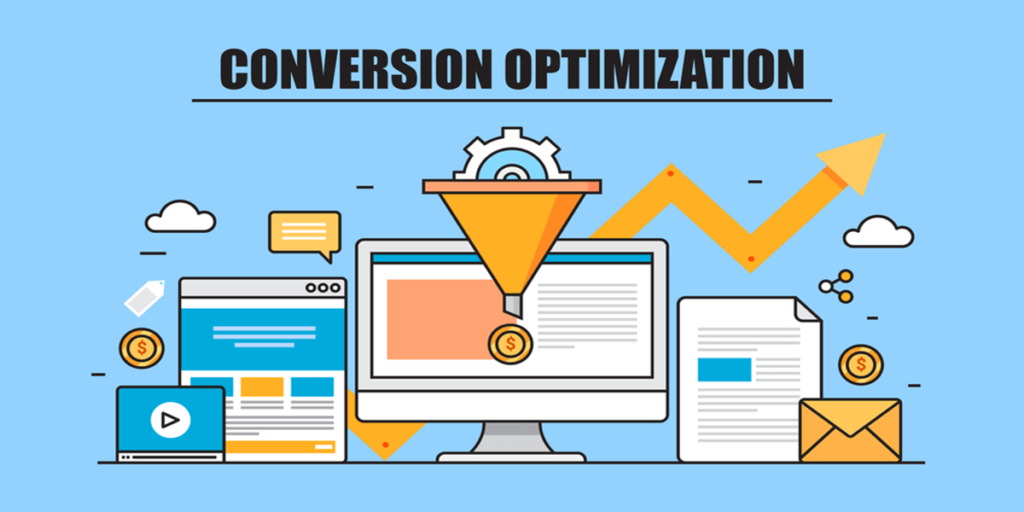Introduction
SEO is always evolving, and what worked a few years ago might not be effective today. Unfortunately, many outdated SEO myths continue to circulate, leading website owners and marketers in the wrong direction. If you want to achieve high rankings and better visibility online, you need to follow SEO Best Practices and avoid these misconceptions.
In this blog post, we will debunk the eight most common SEO myths you should ignore in 2025 and explain what actually works.
1. More Keywords Mean Higher Rankings
One of the most common myths in SEO is that stuffing content with keywords will lead to higher rankings. While keywords are an essential part of SEO Best Practices, excessive keyword stuffing can actually harm your website’s performance.
The Truth:
Google’s algorithms have become highly advanced, and they can detect unnatural keyword usage. Instead of stuffing keywords, focus on using them naturally in your content, meta descriptions, and headings. Aim for a keyword density of around 2% to 2.5% and maintain readability.
2. SEO is a One-Time Task
Many people believe that SEO is something you do once, and your rankings will stay intact forever. However, this is far from the truth.
The Truth:
SEO is an ongoing process. Search engines frequently update their algorithms, and competitors are always optimizing their content. To maintain and improve rankings, you must continuously follow SEO Best Practices, update your content, build quality backlinks, and monitor your website’s performance.
3. Backlinks Are No Longer Important
Some believe that backlinks have lost their importance in 2025. While it is true that Google now values content quality more than ever, backlinks still play a crucial role in SEO.
The Truth:
Backlinks from high-authority websites remain one of the strongest ranking factors. Google considers backlinks as votes of confidence. However, focus on getting quality backlinks rather than a large number of spammy links. SEO Best Practices suggest earning backlinks naturally through high-quality content, guest posts, and outreach.
4. Social Media Doesn’t Affect SEO
Some SEO experts claim that social media has no direct impact on search rankings. While it may not be a direct ranking factor, it plays a significant role in SEO success.
The Truth:
Social media helps increase brand awareness, drive traffic, and boost engagement. When your content gets shared and linked on social platforms, it can attract organic backlinks and improve your SEO rankings. SEO Best Practices recommend sharing blog posts, engaging with users, and building a strong social media presence.
5. Longer Content Always Ranks Better
There is a widespread belief that longer articles automatically rank higher on Google. While longer content often performs well, it’s not the only factor that determines rankings.
The Truth:
Content quality is more important than length. If your article provides valuable, relevant, and well-structured information, it will perform better regardless of word count. SEO Best Practices recommend writing in-depth content that answers users’ questions effectively while maintaining a natural flow.
6. Paid Ads Improve Organic Rankings
Many business owners believe that running Google Ads will boost their organic rankings. This is a common misconception.
The Truth:
Google Ads and organic SEO are separate. Paying for ads does not influence your organic rankings. However, a strong paid marketing strategy can complement your organic efforts by driving immediate traffic while you build long-term SEO authority.
7. Duplicate Content Leads to a Google Penalty
Many website owners worry that having duplicate content on their site will lead to a penalty. While duplicate content isn’t ideal, it doesn’t result in a direct penalty.
The Truth:
Google doesn’t penalize duplicate content outright, but it does filter out similar pages from search results. To avoid ranking issues, make sure your content is unique and valuable. Use canonical tags where necessary and follow SEO Best Practices to create high-quality, original content.
8. SEO is All About Rankings
Some people think that SEO is only about ranking on the first page of Google. While rankings are important, SEO is much more than that.
The Truth:
SEO is about improving user experience, increasing website traffic, and generating conversions. Even if you rank high but fail to provide value, visitors won’t stay on your site. SEO Best Practices emphasize user engagement, fast-loading pages, mobile-friendliness, and high-quality content to improve overall website performance.
Conclusion
Ignoring these SEO myths and focusing on proven SEO Best Practices is crucial for long-term success. Instead of relying on outdated tactics, adapt to the latest search engine algorithms, create valuable content, and build a strong digital presence.
By avoiding these common SEO myths and staying updated with SEO Best Practices, you can improve your website’s ranking, drive organic traffic, and achieve long-term success in 2025 and beyond.



